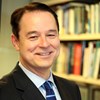David Boaz is executive vice president of the Cato Institute and editor of The Libertarian Reader and Liberating Schools.
You don’t have to be Catholic to admire Pope John Paul II’s role in undermining communism in Europe and his courageous visit to Cuba last year. Who else in the world could make Fidel Castro broadcast attacks on communism?
But some of the pope’s most significant remarks in Cuba were almost lost in the media coverage, which focused on the delicate confrontation with Castro. Among John Paul’s most provocative comments were those on education. Speaking at a mass in the city of Santa Clara, the pope called on parents to take back the responsibility of educating their children and chided the Cuban state for subverting the family’s responsibility.
The pope’s words found a ready audience among Cuban parents dissatisfied with the communist-run schools. But they are worth pondering in the United States as well, for they prompt some difficult thoughts about our own school system. Here’s what the pope told millions of Cubans in his televised mass:
Parents must be acknowledged as the first and foremost educators of their children. Their role as educators is so decisive that scarcely anything can compensate for their failure in it. . . . It is true that in the area of education, public authority has certain rights and duties, since it must serve the common good. Nevertheless, this does not give public authority the right to take the place of parents. Consequently parents, without expecting others to replace them in a matter that is their own responsibility, should be able to choose for their children the pedagogical method, the ethical and civic content, and the religious inspiration which will enable them to receive an integral education. They must not expect everything to be given to them; they should assume their mission as educators while seeking opportunities and creating adequate structures within civil society.
The pope’s gentle but profound words were correctly understood as an indictment of Castro’s schools, which teach children socialism, atheism, and anti-Americanism, no matter what their parents’ values may be. Indeed, there’s no question that in Cuba and other communist countries, the essential purpose of the schools is precisely to eradicate all traces of the parents’ values, which are often religious or capitalist, and replace them with Marxist theory and submission to the communist state. All Americans, not just Cuban-Americans, must fervently hope that the pope’s message will help to liberate Cuban children from the statist indoctrination of Castro’s schools.
Does the American System Measure Up?
But how well does the American school system meet the pope’s standard? Our own schools are mandatory and government run, with little room for parental choice or control. Every line of the pope’s message can be read as a criticism of our own educational monopoly—and perhaps also as a criticism of American parents who have let the state take over their responsibilities.
The pope says that “parents should be able to choose for their children the pedagogical method, the ethical and civic content, and the religious inspiration which will enable them to receive an integral education.” Clearly, most parents can’t do that today. Taxed to support the public schools, most parents feel unable to pay a second time for private schools that might better reflect their own values. Despite the Catholic Church’s extensive network of schools, many Catholic parents feel too burdened by taxes and other living expenses to heed the pope’s call. And of course American parents have virtually no control over the pedagogical method—that is, the style of teaching—used or the ethical values transmitted in their children’s public schools. As for religious inspiration, that is entirely absent from American public schools. It’s appropriate for government-run schools in a diverse society to avoid teaching religion, but that raises the question of whether the schools should be run by the government.
By the pope’s standard, it would seem that American parents are being deprived of the freedom to exercise their responsibility to direct the education of their children. But American parents may find the pope’s message a bit uncomfortable, in that it forces them to contemplate whether they are fulfilling their responsibilities as parents: “Their role as educators is so decisive that scarcely anything can compensate for their failure in it”; parents should not “expect others to replace them in a matter which is their own responsibility”; “they must not expect everything to be given to them.”
The pope seems to be saying that parents must not relinquish their moral responsibility to direct the education of their children—and must not simply expect other people, or the government, to pay for something that is their responsibility.
That is not to say that parents must school their children at home. In fact, the pope points out that in “assuming their mission as educators” parents will “seek out opportunities and create adequate structures within civil society.” In the pope’s understanding, “civil society” means all the associations in society—churches, schools, clubs, and businesses—but not the government.
Parents, then, have a moral responsibility to direct the style and content of their children’s education, government should not usurp their role, and parents should not expect education simply to be given to them. That’s a message we should hear in the United States. The failure of our government-run schools is a direct result of government’s taking over a critical family function and parents’ abdication of their duty. Let’s hope the pope’s health will allow him to deliver this message in Washington, D.C., some day soon.

